Have you ever wondered what skills it takes to start growing your own vegetables and live a more homegrown lifestyle? Good news - we all have some of these skills! At least Kirsten Bradley thinks we do. Kirsten, along with her partner Nick Ritar, started Milkwood more than 10 years ago, a social enterprise dedicated to teaching and sharing permaculture skills, for living like it matters.
We caught up with Kirsten recently and chatted to her about permaculture living, Milkwood and our relationship with nature.
How would you describe permaculture living to someone who has never heard about it before?
I would describe permaculture as 'systems thinking for everyday life'. It's a set of principles, a set of ethics. It's a design system that helps us all live better lives. It allows people to design all manner of things, keeping a holistic view of the planet and their community.
At its essence, it's a set of principles which can be used to design anything from how you organise your kitchen drawers to running a farm, community garden, school or accountancy practice. It's taking principles from nature and applying them to a human context that considers both the Earth and community, and what's the best outcome for everything and everyone.
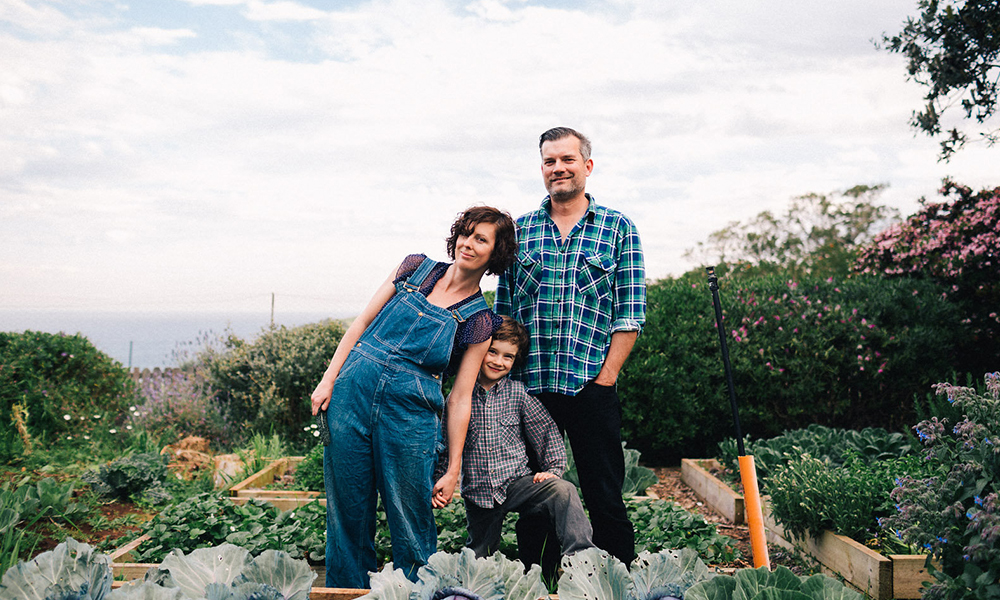
Before you started Milkwood, you grew up on East Coast NSW and moved away to the city, did you ever picture yourself eventually living off the land on a farm or was this an idea that slowly grew over time?
I grew up surrounded by nature, which was wonderful, and then sort of escaped from it all to a city as soon as I could, at the age of 18. I absolutely love cities, there's just so much creativity and so much humanity in this one place. The possibilities seemed endless in terms of what communities can do and how swift change can happen on a social and cultural level. So I have a very special place in my heart for cities.
But, as life would have it, I am really happy to be back by the sea down in southern lutruwita (Tasmania) and connecting with a less human ecosystem around us. Although I very much like the humans in my ecosystem too.
What are the main benefits of permaculture living and implementing it in your life?
I think having a little framework that encourages you to see problems and challenges holistically is really, really valuable. Trying to always keep in mind what's best for the planet and the soil in which you stand. What's best for your community when you're making choices about how you catch and store water or about how you use the money that you have. It's great, especially in this day and age, to have those principles as a framework around your decision making.
Whether it's household decisions or big picture stuff, the permaculture principles are really solid and can help. They are really ethical, really reasonable. Especially in the world that we live in, and this year that we're living in, it's pretty easy to get tangled up emotionally when you're making decisions.
But with permaculture, you can come back to the 12 principles and think things like: Is this okay for my ecosystem? Is this okay for the watershed? Is this okay for the people downstream? Is this an equitable solution in terms of food justice or social justice? How can I make the best decision at this point that reflects the benefit to all of those things rather than just "this is really great for me". I think it's time we all started thinking like that and making decisions with those things in mind. If you've got some good principles that bring you back every time you are trying to decide things, it can be really powerful.
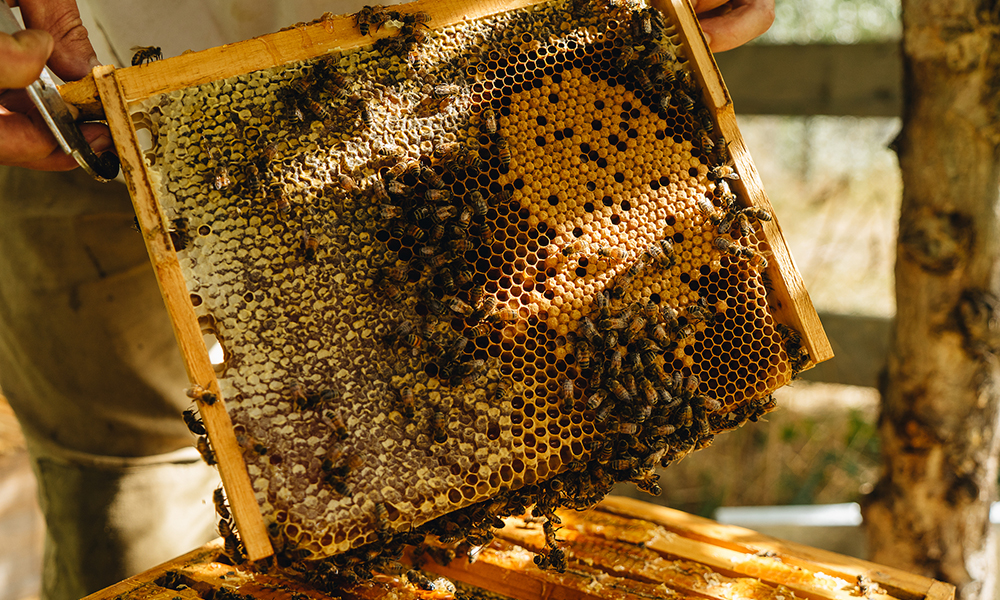
There is a ripple effect with a lot of the choices we make, it is important to be mindful of that. Now at Milkwood you have courses on permaculture living, a very positive ripple effect of learning and sharing. What is your favourite part about sharing permaculture knowledge with others?
Oh I have lots of favourite bits! Quite often students will come to the course thinking they are there because they don't know very much, and they are there to learn. But as you draw out the knowledge in the room – and you draw out people's life experiences, where they are coming from, what their hopes and dreams are – you watch people realise how much knowledge they already have. There's this thing that's said – the class starts teaching itself. It's beautiful when that happens.
A lot of teaching around permaculture skills seems to be as much about giving people permission to step into the knowledge that they already have inside them as it is about teaching people something that they don't know. Of course there is a lot of 'this is how you do something' or 'here's a way to think about something that you may not have considered before', but watching the knowledge in the room come to the surface and watching people go 'ah I could definitely do that, in fact I am already half doing that!' is just great.
Giving people permission to step into their strength is absolutely wonderful time and time again. And also watching them learn to grow tomatoes and mushrooms, all of that stuff is good.
What do you hope that people get out of taking the 12-week online course? Even if it is one lesson learnt?
With our Permaculture Living course, I'd love it if people came out of that experience knowing that it's changing our world and our homes for the better, one step at a time.
Choose one habit or action, make that normal, then choose one more thing. Proceed like that and that's how you ensure success on lots of levels, as opposed to trying to bite off a huge amount and, if you don't get it completely right, feeling like you've failed.
Living a good life is not about huge things. I think it's about joining all of those little things together and slowly making more and more good choices. Being gentle with yourself along the way when it doesn't all go perfectly, but committing to keeping going. This way, you can gradually create a better life for yourself, your community and our world.
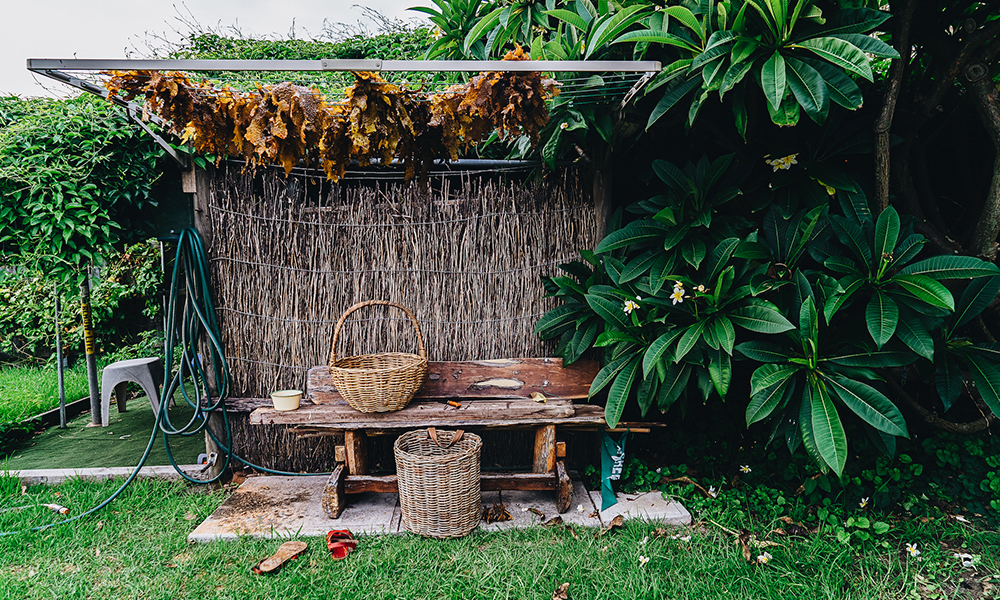
Thinking about self care and doing your bit when you can, how important is it for you to make time for nurturing things like cooking a meal or tending to a garden?
They are very important. There are also a lot of meta levels and aspects of goodness that come from those simple rituals or habits, well above and beyond the cooking of the food or tending of the garden. We're reconnecting with parts of ourselves and parts of our ancestors' histories that might not be as easy to access mentally.
Using our hands in the soil and in the kitchen connects us with all sorts of traditions, it connects us with all sorts of fantastic nutritional pathways. When you've got your hands in the soil you're caring for the Earth and the Earth is caring for you. Getting your hands in the soil is a very unique way to access your ecosystem, to interact with the world around you, that is your place, that is where you are and where you live.
Spring is here and is as good a time as any to make those investments in your garden or in the kitchen. What's your favourite meal to make for your family in spring?
Oooh spring is salad time for me. You've got all of the beautiful lemons and citrus still going on. Maybe a white bean salad with lots of crunchy raw fennel and some sort of preserved lemon, garlic, olive oil dressing. Yeah, lots of raw crunchy things with garlicky dressing, basically.
Definitely a fan of crunchy salads!
I've been on a bit of a tahini dressing trip the last couple of weeks...
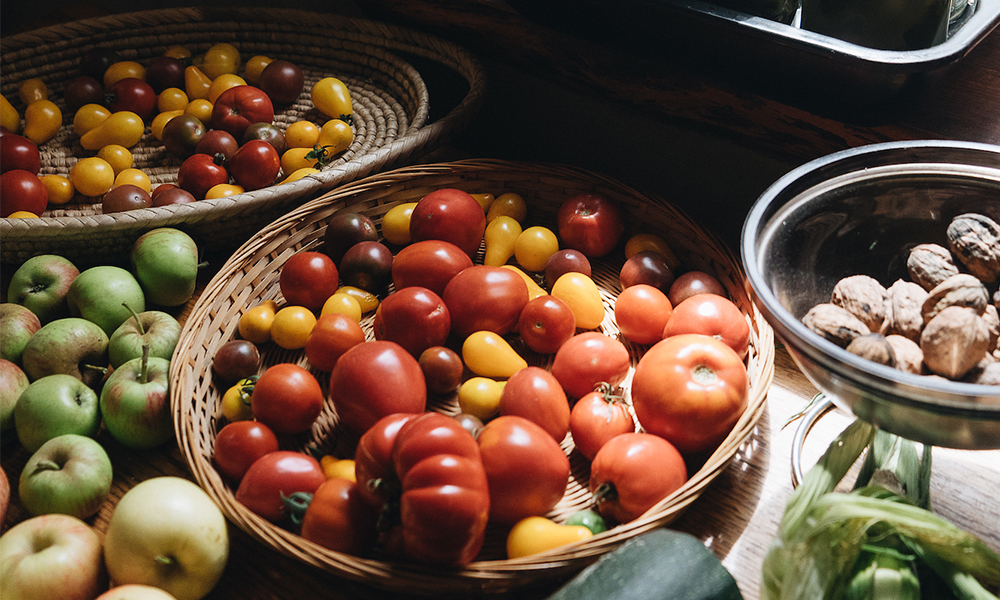
And when I asked what gives her hope for the future of the environment, Kirsten left us with these wise words.
There's lots of things that give me hope. One of the many things I have watched this year, amid the COVID-19 pandemic, is that people have been forced to pause. I've loved watching households and communities come back to first principles around what matters, and seeing people – who didn't think they had the time or space – start a garden. Or start swapping lemons with their neighbours, or get involved with the community in some way.
I'm seeing a lot of people remember that true wealth and true luxury is mutual aid systems and having people around you that are mutually supportive. It's little green leaves that you grew yourself instead of outsourcing your entire food stream to a supermarket.
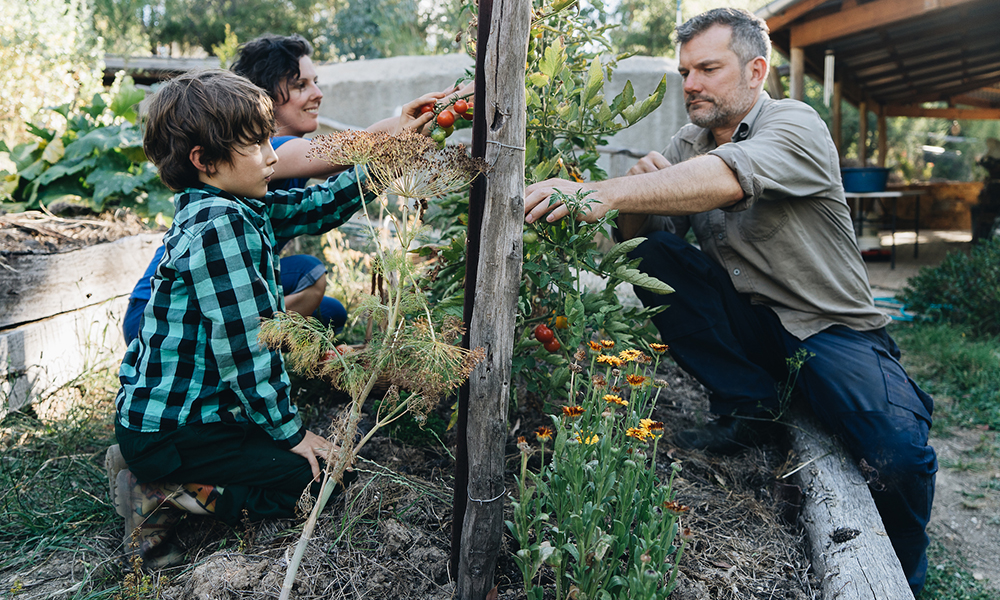
I am honestly and truly hopeful that people, outside of this pandemic time, take with them these little but huge things into the new normal. Interacting with your garden, interacting with your community and placing mutual aid and our ecosystems closer to our hearts, as opposed to something that happens over the fence and far away. I am really enjoying watching everyone's priorities shift.
Eager to kickstart your permaculture life? Join one of Milkwood's amazing online courses. 1 Million Women's audience gets 10% off too, sign up here.
Written by Briana Kennedy
Briana has a passion for the environment and intersectionality. When she's not hosting her community radio show, DJing or producing podcasts, she can be found outside, never far from the ocean. Her ideal day is one where she can fit in a bush walk AND go for a surf.
All photos courtesy of Milkwood
